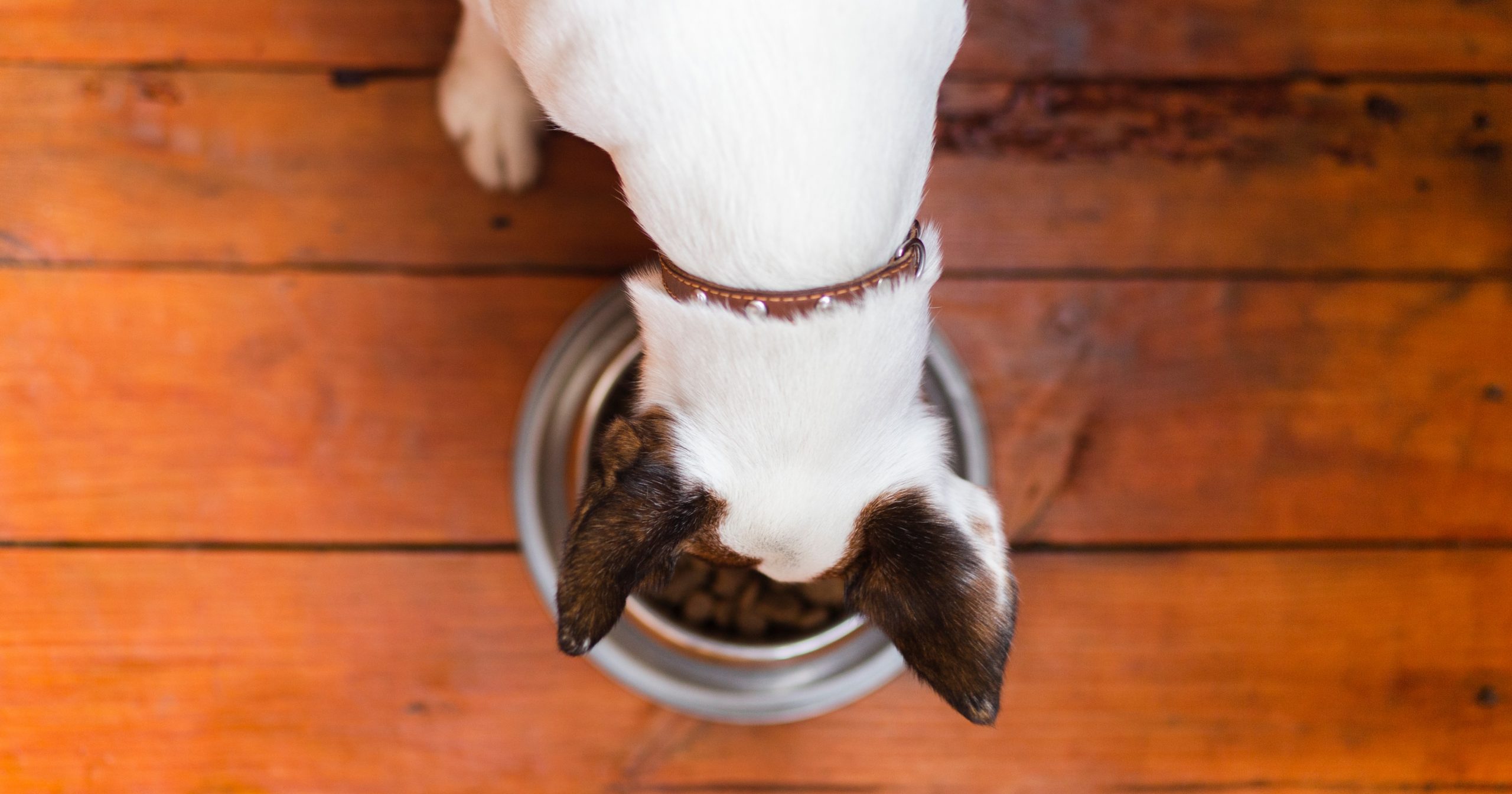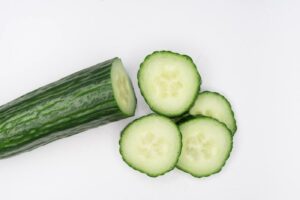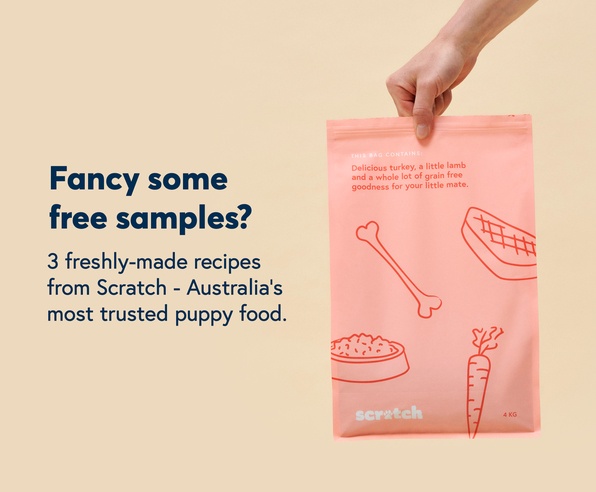You don’t have to look far to observe that food culture has never been stronger. Asking questions about where our meals come from, who makes them, and what they’re doing to us is no longer a gourmet habit. Increasingly, we’re all paying closer attention to what we eat, and the systems that provide our food. With that in mind, it’s not surprising that we’re also bringing those values to our pet’s diets. But while there is a lot to celebrate in the human culinary scene, interrogating what’s on offer for your dog can be more disturbing. As we’ve written, commercial dog foods vary a lot in quality and value. As a result, many owners have made the decision to choose homemade dog food.
Why People Make Their Own Dog Food
The interest in homemade dog food is reflective of broader food trends, but has also been driven by a decade of pet food recalls and tragically even deaths. In 2007 Canadian manufacturer Menu Foods unknowingly produced a batch of pet food made with tainted ingredients from a new Chinese supplier. When it became apparent that dogs and cats were getting sick the U.S Food and Drug Administration carried out the largest pet food recall in history. Sadly, by then the tainted food had already led to the deaths of thousands of pets.Following that disaster, The New York Times observed a massive uptick in the sale of pet food cookbooks.
Closer to home, scares have also had owners looking for ways to guarantee their dog’s food is safe. Last year more than 70 Australian dogs were diagnosed with megaesophagus–a rare and incurable condition involving the oesophagus–that was later traced back to Advance Dermocare dog food.
Understandably spooked, many owners have decided it’s safer to prepare meals at home, where they could have full control and visibility over ingredients. While those intentions are admirable, homemade dog food can be a contentious issue. Many owners swear by the decision, but scientific evidence about its benefits is lacking.
The Pros of Homemade Dog Food
Making your own pet food allows more control over what your dog eats. That’s especially helpful if your dog has specific needs like allergies (or is just a picky eater). It also cuts out the concern that your dog’s food is being bulked out by cheap, nutritionally empty, filler ingredients. Commercial food needs to be able to last for an extended period of time on the shelf, necessitating the inclusion of additives and preservatives. Making and serving your own food removes all that.
Finally, and probably most importantly to your dog, home cooked food is often more exciting. Homemade dog food allows you to introduce different ingredients, mix things up, and offer more variety. As you can probably imagine, eating the same kibble or wet food everyday can get old.

The Cons of Homemade Dog Food
So far we’ve been painting a grim picture of the commercial pet food scene. But the reality is a lot of research and experies go into developing (good) dog food. Manufacturers work with vets and nutritionists to make sure their product is nutritionally complete. That’s almost impossible to do on your own–the common offering of chicken and rice won’t cut it.
If you do want to attempt to cook your own balanced homemade dog food it’s going to take you a lot of time, research, and some very accurate scales. Pet nutrition is also infamously complex. For example, popular staples like mince are high in protein and fat, but have almost no calcium. It’s not just about making sure they have protein, carbs, vitamins and minerals though. Different animals have different needs, and ingredients can interact to impact nutritional absorption. It’s a lot to keep track of. Plus dog nutrition isn’t the same as human, so you’d be starting from scratch knowledge wise.
Making a mistake can be serious, and may lead to nutritional deficiencies and excesses that can cause illness and organ damage.
Stuff to Consider If You Choose to Make Your Own
That’s not to say it can’t be done. There are just some things to consider.
Get the right advice: Skip over the millions of articles offering homemade dog food recipes and advice online (yes, the irony of us telling you that isn’t lost) and speak to a veterinary nutritionist who is specialised in this area (most regular vets aren’t experts on this stuff). They can tell you what’s right for your pet, give you scientifically backed advice, and help you monitor your pet’s response. Even the most deeply researched pet food cookbook can’t speak specifically to your dog’s needs.
Use supplements to fill nutritional gaps: Commercially made pet food also includes additives that are good for your pet, such as Omega 3, 6, and 9. It can be hard to achieve perfect nutrition through ingredients alone. So if you’re making your own, supplements such as fish, flax, and sunflower oils can be really valuable. Again, consult with an expert. As with human supplements, it’s not a one-size fits all situation. Buying the wrong ones is a waste of money and could create other issues.
Consider alternatives: Your choices here aren’t between spending hours each week cooking for your dog or serving them out of a 25kg bag of economy pet food. There are many companies (usually small batch producers) who prioritise quality over profit, care about nutrition as much as you, and have the resources to do the research and get it right. We wrote up some tips about the various places you can buy dog food. (We also have one suggestion.)
Follow the recipe: If you’ve settled on a recipe (informed by expert advice), don’t be tempted to change it up too much. Not only could you throw off nutrition levels, but you may also accidentally substitute in a dangerous ingredient. Dogs aren’t the garbage guts we assume them to be, there are a lot of seemingly innocuous foods that are deadly for them. For example they can’t eat raw salmon skin, but cooked is fine.
Check in: You know we love to tell you to consult an expert. So here it goes again: After you’ve worked with a professional on a homemade food plan, revisit it with them after a few weeks. They can check your pet’s weight and general health to make sure they’re getting what they need and catch any issues or imbalances early.
For more on dog nutrition, check out:
Which Christmas Foods Are Dangerous for Dogs?
Is Insect-based Dog Food the next Pet Health Trend?
While you’re here, subscribe to our newsletter, check out our magazine, and follow us on Instagram, Facebook, and Twitter.







